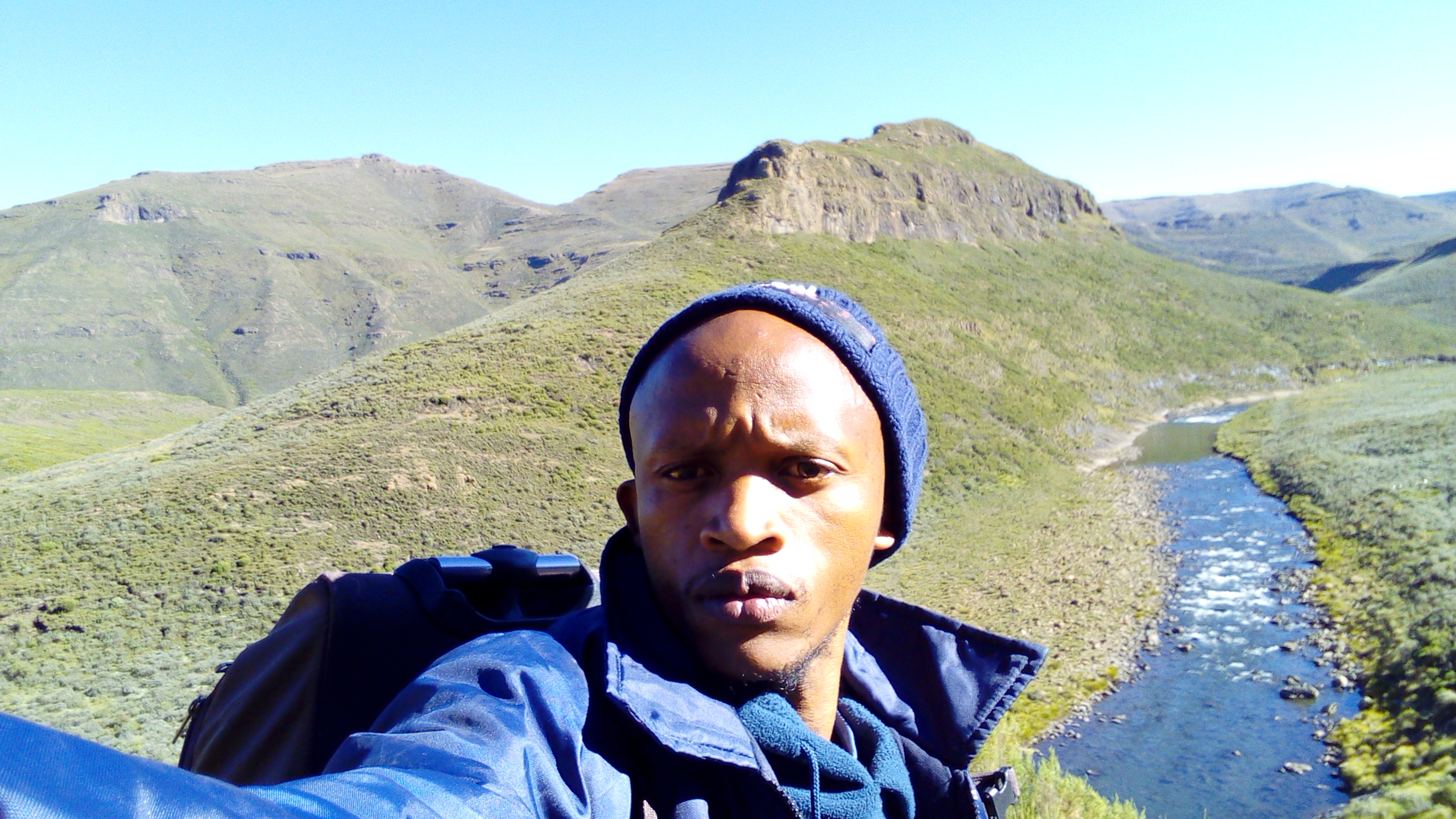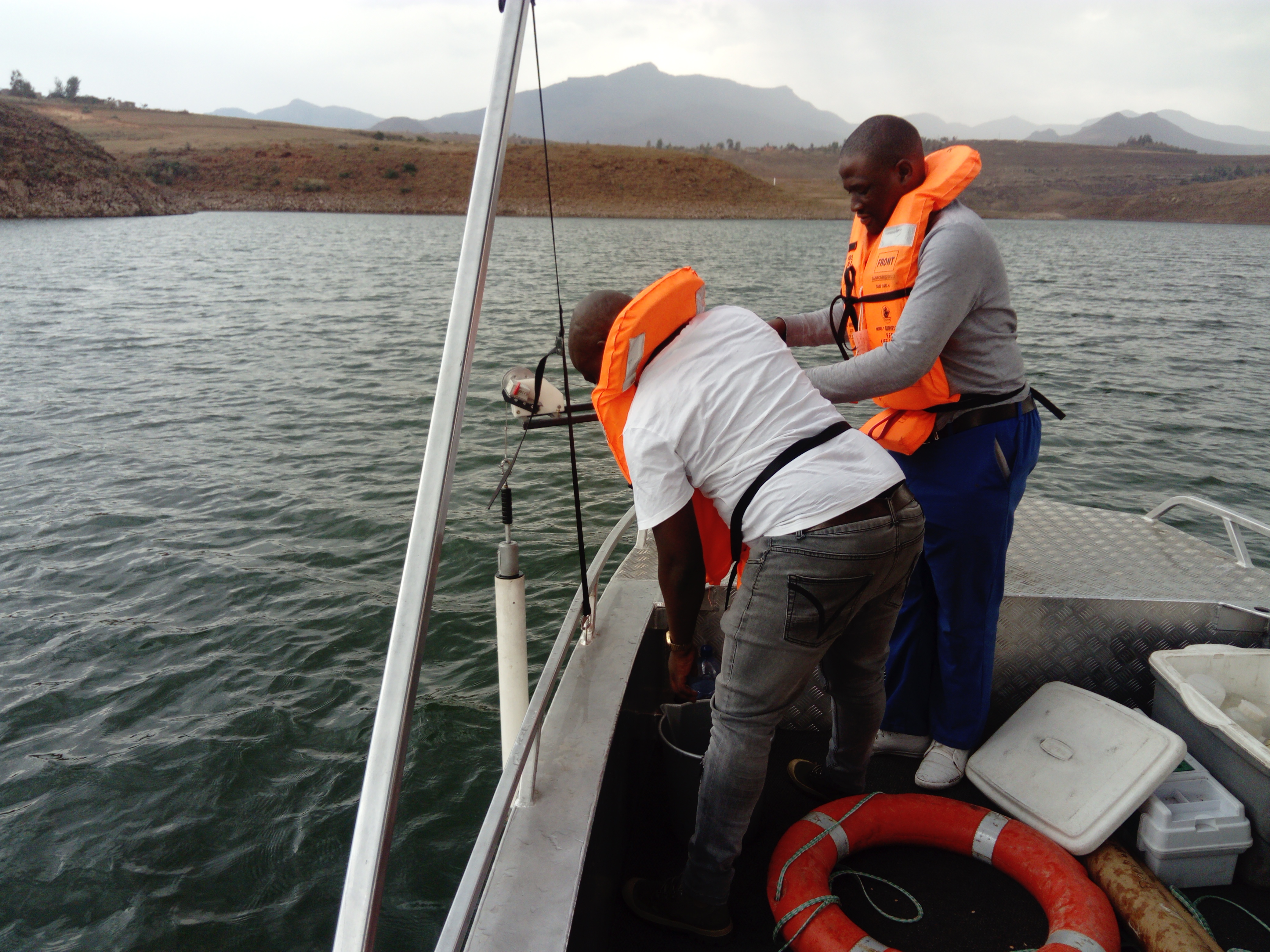Ntiea Letsapo from Lesotho

Making a Difference in Water Quality: Ntiea Letsapo, Department of Water Affairs, Lesotho
Ntiea Letsapo first came to GEMS/Water CDC in 2017, when he was working as an assistant hydrobiologist with the Water Rights Division, part of the Lesotho Department of Water Affairs, a state agency tasked with assessing and managing national water resources (more information here: https://www.water.org.ls/dwa/). After years of hard work and dedication, he earned his MSc at University College Cork in 2021, under the aegis of GEMS/Water CDC, which provided both financial and academic support for Ntiea and several of his colleagues. Ntiea has since been promoted to Senior Engineer Water Resources, and he is now responsible for the assessment, evaluation, and management of national water resources in wetlands, rivers and reservoirs.
We here at GEMS/Water CDC recently had the opportunity to check in with Ntiea and hear about how he benefitted from working with us, and how he is using his new expertise to benefit his community. “The opportunity to study with UCC and compete the MSc in Freshwater Quality Monitoring and Assessment”, Ntiea explains, “has been vitally imperative for my country”. It brought him expert knowledge in freshwater quality dynamics and placed him “in a position where [he] can make informed deductions with regard to water quality management in the country”.
Ntiea and a colleague collecting samples from a boat. For large waterbodies such as lakes and reservoirs, small craft such as this are necessary to collect samples from different points in the water column and from the lake bed.
Knowledge and expertise has made Ntiea an invaluable asset to the water quality monitoring sector in Lesotho, and he has already participated in several key projects. These include the transboundary water resource quality survey known as the ORASECOM Joint Basin Survey (JBS3). ORASECOM is the Orange-Senqu River Commission, the institution responsible for managing the resources of the Orange-Senqu River basin, a transboundary resource shared by Botswana, Namibia, South Africa, and Ntiea’s own home of Lesotho. Here, Ntiea helped by providing expertise and taking part in data collection, analysis, and reporting, working in conjunction with colleagues from Botswana, Namibia, and South Africa. Currently, the JBS3 report is being finalized; details of the previous report, and more about ORASECOM, can be found here: https://wis.orasecom.org/water-resources-quality-joint-basin-surveys/.
Critical issues that Ntiea identified in this work are data sharing, inter-laboratory benchmarking, and data analysis. These are areas that GEMS/Water CDC is particularly focused on, and indeed the broader issue of data management is a crucial one for water quality monitoring worldwide. “This,” Ntiea explains, “is there the skill set and training we got from GEMS/Water became vital,” as the collaborative work he and his colleagues engaged in gave them the opportunity to use and share their knowledge, coordinating the efforts of scientists across the region as they seek to manage water resources for the benefit of all.
GEMS/Water has continued to provide support for Ntiea and his colleagues, some of whom have acted as focal points for the reporting of indicators relevant to the United Nations Sustainable Development Goal 6: Ensure availability and sustainable management of water and sanitation for all (more information about SDG 6 here: https://sdgs.un.org/goals/goal6). Several key indicators of water quality must be monitored and assessed under guideline 6.3.2, and here GEMS/Water has provided technical support for Ntiea and his colleagues, including one-on-one Zoom assistance.
Ntiea is, of course, not done—he’s only just getting started! He has continued to contribute to water quality monitoring in Lesotho and beyond, and he reports that he has developed project concept notes for a programme in water natural capital accounting, which has been submitted to GEF (Global Environmental Facility) for funding (more information about GEF here: https://www.unep.org/about-un-environment/funding-and-partnerships/global-environment-facility). He is currently working for the Lesotho Lowlands Water Development Project phase III, a project to provide water and sanitation services in the Butha Buthe District of Lesotho (information about phase II of this project here: https://llwdp.co.ls/about-us/). We wish Ntiea all the best and hope that next time we check in with him, he’ll have even more to report.
UNEP GEMS/Water Capacity Development Centre
UNEP GEMS/Ionad Forbartha Acmhainneachta Uisce
Contact us
Environmental Research Institute, Ellen Hutchins Building, University College Cork

